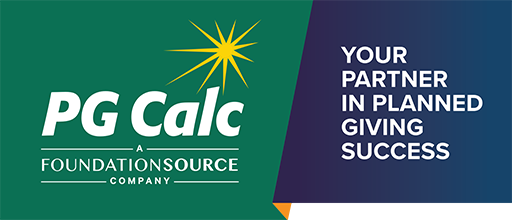Projecting the Value of your Bequest Pipeline
-Planned giving departments need to demonstrate accountability for results in terms of gift revenue. Our challenge, of course, is that we generally don’t know how much planned gift revenue is coming or when it will come in, making it very difficult to accurately measure the results of current efforts. Let’s look at how using a combination of historical realized planned gifts and current calculations can generate a reasonable picture of the value of your planned gift pipeline.
Testamentary Gifts of Retirement Plan Assets
-The charitable IRA rollover has received a lot of attention from gift planners over the last few years. Since it was made permanent by the PATH Act in late 2015, gift planners across the country have re-doubled their efforts to let their supporters know about this tax efficient way to give. Many are finding success, too. Over one-third of the respondents to a recent poll of PG Calc webinar attendees said their organization had received over 20 charitable IRA rollover gifts in the past year.
How to Get Volunteers Talking About Bequests
-This document is derived from one we created for a consulting client. In conversations with that client we wanted to ensure that they were augmenting an excellent marketing effort with on-the-ground cultivation and solicitation. To add to the ranks of a bequest society, a planned giving officer often needs volunteers to help, and volunteers are more willing if they are informed enough to be comfortable. The best volunteer solicitors are ones who have made a gift, but there is still a gulf between making a gift and feeling prepared to ask another to do the same.
Bequest
-A bequest is an irrevocable transfer by will of securities, real estate, tangible personal property, or other assets from the deceased to an individual or charity. Donors typically make outright bequests to charity, but they can also make them in the form of a planned gift. For bequests to charity, the donor's estate earns an estate tax deduction equal to the value of the gift to the charity.
Revocable Gifts
-There are a variety of ways that a donor can make a commitment to your charity of an end-of-life gift that she can modify later or cancel altogether, if necessary. This sort of flexibility can be of great comfort to a donor who is nervous about her financial future, but wants to act on her desire to support a charity.
Good Old Bequests
Appreciating Residual Bequests
-Some bequests are more equal than others. Although the terminology may vary a bit, there are basically three different types of bequests: pecuniary (in which a sum of money is given), specific (in which a particular asset is given), and residual (in which all or a portion of the donor’s estate is given after taking into account pecuniary and specific bequests, along with the payment of debts and expenses of the estate).
Many seasoned institutional gift planners are partial to residual bequests.
Computing the Value of a Future Bequest
-We are asked regularly by clients for help estimating the value of a known bequest intention that will occur at some unknown time in the future, when the donor dies. There are two common approaches to making this determination, the life expectancy approach and the mortality approach.

